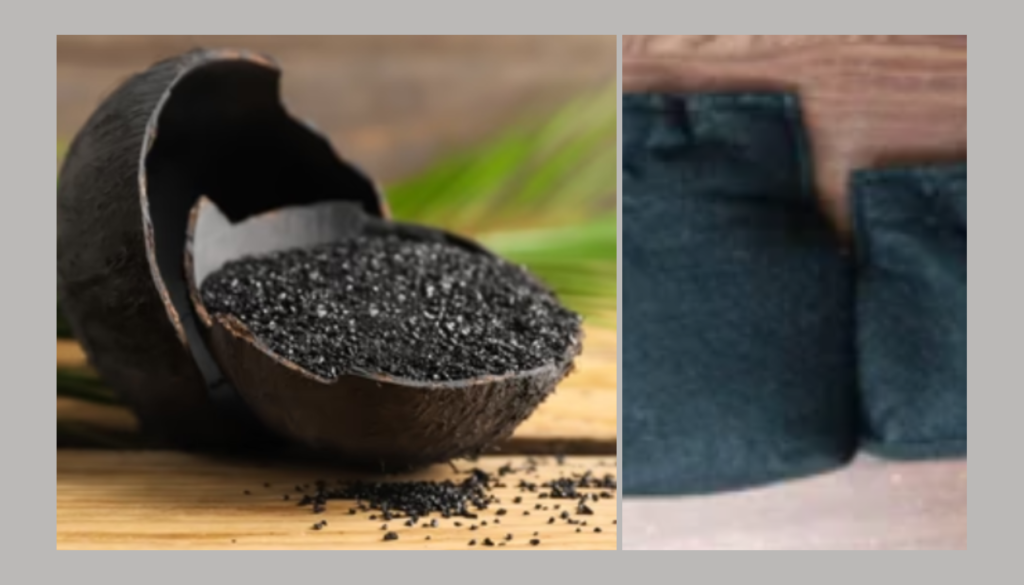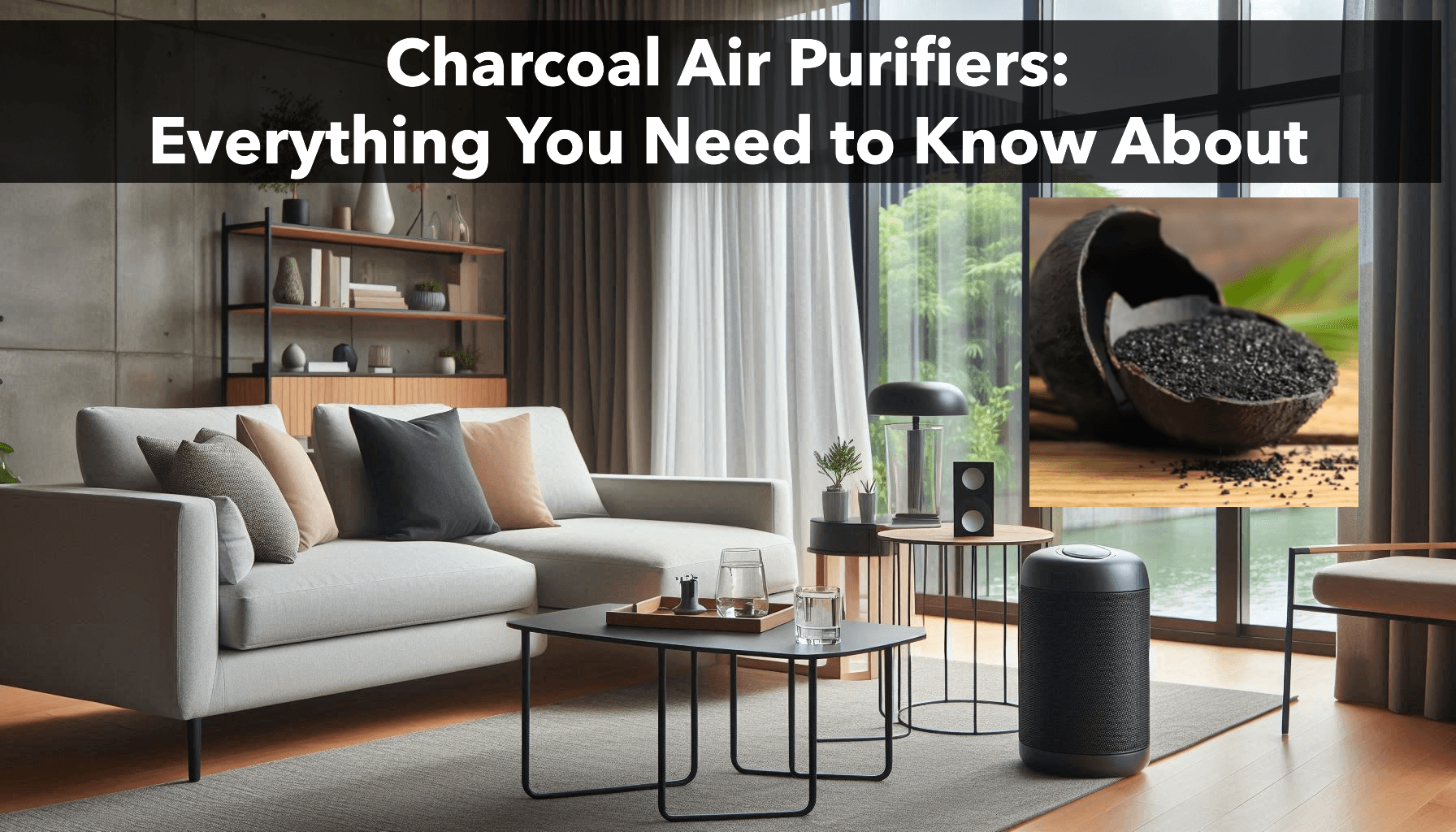Charcoal air purifiers have gained popularity for their natural and effective way of cleaning indoor air. By utilizing activated charcoal, these purifiers can remove impurities, allergens, and odors, ensuring a healthier living environment. If you’re looking for a reliable solution to improve air quality, a charcoal air purifier might be just what you need.
The primary function of a charcoal air purifier is to trap pollutants through a process called adsorption. Activated charcoal has a large surface area filled with tiny pores that capture dust, pollen, smoke, and chemical fumes. This makes charcoal air purifiers an excellent choice for those seeking a chemical-free and eco-friendly method to purify their home air.
Choosing a charcoal air purifier offers multiple benefits, including odor removal, allergy relief, and improved overall air quality. Whether you have pets, are sensitive to chemicals, or simply want fresher air, understanding how charcoal air purifiers work and their advantages can help you make an informed decision for a cleaner, healthier home.
What is a Charcoal Air Purifier?
A charcoal air purifier uses activated charcoal to filter the air. Activated charcoal is a form of carbon that’s been treated to have a large surface area, making it highly effective at trapping pollutants.
How Do Charcoal Air Purifiers Work?
Charcoal air purifiers work through a process called adsorption, which is different from absorption. Here’s how they work:
- Air passes through the charcoal filter: As the air moves through the purifier, it passes through a filter that contains activated charcoal.
- Pollutants are trapped in the tiny pores of the charcoal: The large surface area of activated charcoal has numerous tiny pores that can trap and hold various pollutants.
- Clean air is released back into the room: Once the air has been filtered, it is released back into the room, free of pollutants and odors.
Activated charcoal can absorb a wide range of impurities, including:
- Dust
- Pollen
- Smoke
- Pet dander
- Chemical fumes
- Volatile organic compounds (VOCs)

Why Choose a Charcoal Air Purifier?
There are many reasons to choose a charcoal air purifier:
- Natural and non-toxic: Activated charcoal is a natural substance that doesn’t release harmful chemicals into the air.
- Effective: Charcoal can absorb many different types of pollutants.
- Odor removal: It’s especially good at removing odors, making it perfect for homes with pets or smokers.
- Eco-friendly: Activated charcoal is a renewable resource, and many charcoal air purifiers are designed to be environmentally friendly.
Benefits of Using Charcoal Air Purifiers
1. Improved Air Quality
Charcoal air purifiers remove a wide range of pollutants from the air, which can improve overall air quality and make it easier to breathe. Clean air can help reduce the risk of respiratory problems and improve overall health.
2. Odor Removal
Charcoal is excellent at trapping odors. Whether it’s pet smells, smoke, or cooking odors, a charcoal air purifier can help keep your home smelling fresh. This makes them particularly useful in kitchens, bathrooms, and homes with pets.
3. Allergy Relief
By removing allergens like pollen and pet dander, charcoal air purifiers can provide relief for allergy sufferers. Cleaner air can reduce symptoms such as sneezing, coughing, and itchy eyes.
4. Chemical-Free
Unlike some air purifiers that use chemicals to clean the air, charcoal air purifiers use natural activated charcoal, making them a safer choice for your home. This is particularly important for households with children, pets, or individuals with sensitivities to chemicals.
5. Eco-Friendly
Activated charcoal is a renewable resource, and many charcoal air purifiers are designed to be environmentally friendly. This means you can improve your indoor air quality without harming the environment.
6. Energy Efficiency
Many charcoal air purifiers are designed to be energy-efficient, using minimal electricity while still providing effective air purification. This can help reduce your energy bills and environmental footprint.
How to Use a Charcoal Air Purifier
1. Choose the Right Size
Make sure to select a purifier that’s the right size for your room. Most manufacturers provide guidelines on the square footage their purifiers can handle. Choosing the right size ensures that the purifier can effectively clean the air in the room.
2. Place it Properly
For best results, place the purifier in an area with good airflow. Avoid placing it in a corner or behind furniture where airflow is restricted. Ideal locations include near sources of pollutants (like kitchens or smoking areas) and central locations in larger rooms.
3. Regular Maintenance
- Replace filters: Most charcoal air purifiers have replaceable filters. Follow the manufacturer’s instructions for how often to change them. Regularly replacing the filter ensures the purifier continues to work effectively.
- Clean the unit: Regularly clean the exterior of the purifier to keep it running efficiently. Dust and debris can accumulate on the unit, reducing its effectiveness.
4. Monitor Air Quality
Keep an eye on the air quality in your home. Many modern purifiers have built-in sensors that can alert you when air quality is poor. Some models also have air quality indicators that change color based on the level of pollutants detected.
5. Combine with Other Purification Methods
For optimal air quality, consider combining a charcoal air purifier with other purification methods, such as HEPA filters or UV light. This can provide comprehensive air purification, removing a wider range of pollutants.
Different Types of Charcoal Air Purifiers
1. Portable Charcoal Air Purifiers
Portable charcoal air purifiers are small, lightweight units that can be easily moved from room to room. They are ideal for use in bedrooms, offices, and other small spaces.
2. Whole-House Charcoal Air Purifiers
Whole-house charcoal air purifiers are integrated into your home’s HVAC system to provide air purification throughout the entire house. These systems are more expensive but offer comprehensive air cleaning.
3. Car Charcoal Air Purifiers
Car charcoal air purifiers are designed specifically for use in vehicles. They can help remove odors and pollutants from the air inside your car, making your driving experience more pleasant.
4. Charcoal Bags
Charcoal bags are small bags filled with activated charcoal that can be placed in various locations around your home. They are a low-cost, low-maintenance option for odor removal and air purification.
How to Choose the Best Charcoal Air Purifier
1. Consider Your Needs
Think about your specific needs when choosing a charcoal air purifier. Do you need a portable unit for a small room, or a whole-house system for comprehensive air cleaning?
2. Look for High-Quality Filters
The effectiveness of a charcoal air purifier depends on the quality of its filters. Look for purifiers with high-quality activated charcoal filters that can effectively trap a wide range of pollutants.
3. Check the CADR Rating
The Clean Air Delivery Rate (CADR) is a measure of how quickly an air purifier can clean the air in a room. Higher CADR ratings indicate more effective air cleaning.
4. Consider Additional Features
Many charcoal air purifiers come with additional features such as air quality sensors, multiple fan speeds, and timers. These features can enhance the functionality and convenience of the purifier.
5. Read Reviews
Reading reviews from other customers can give you insight into the effectiveness and reliability of different charcoal air purifiers. Look for products with positive reviews and high ratings.
6. Budget
Consider your budget when choosing a charcoal air purifier. While more expensive models may offer additional features and higher performance, there are many affordable options that can still provide effective air purification.
Conclusion
Charcoal air purifiers are an effective, natural, and eco-friendly way to improve the air quality in your home. By removing pollutants, odors, and allergens, they can help you breathe easier and enjoy a healthier living environment. Whether you’re dealing with allergies, pet odors, or just want cleaner air, a charcoal air purifier can be a great addition to your home.
Key Takeaways
- Charcoal air purifiers use activated charcoal to filter the air.
- They are natural, non-toxic, and highly effective at removing a variety of pollutants and odors.
- Regular maintenance, such as replacing filters and cleaning the unit, is essential for optimal performance.
- Charcoal air purifiers can provide significant health benefits by improving air quality and reducing allergens.
Frequently Asked Questions (FAQs)
Do charcoal air purifiers really work?
Yes, charcoal air purifiers are effective at removing impurities such as dust, pollen, smoke, and odors from the air. They use activated charcoal to trap pollutants, improving overall air quality.
Can charcoal be used to purify air?
Yes, charcoal, particularly activated charcoal, is widely used to purify air. It adsorbs pollutants and odors, making it a natural and effective air purifier.
Are charcoal air filters safe?
Yes, charcoal air filters are safe. They use natural activated charcoal and do not release harmful chemicals into the air, making them a safe option for home use.
Do charcoal air filters smell?
No, charcoal air filters do not produce any smell. In fact, they are very effective at removing odors from the air, helping to keep your environment smelling fresh.
What are the disadvantages of activated carbon filters?
Limited Lifespan: Activated carbon filters need to be replaced regularly, usually every 3-6 months.
Limited Scope: While effective at removing odors and certain pollutants, they do not remove all types of contaminants, such as microorganisms.
What are the benefits of a charcoal room?
Using charcoal in a room can:
Improve air quality by removing pollutants and odors.
Provide a natural and chemical-free way to purify the air.
Help alleviate symptoms for people with allergies or asthma.
How to activate charcoal?
To activate charcoal, it is heated to a high temperature in the presence of a gas. This process creates numerous small pores in the charcoal, increasing its surface area and making it highly effective at adsorbing pollutants.
What are the benefits of using charcoal?
Air Purification: Removes pollutants and odors from the air.
Natural and Non-Toxic: Safe for use around people and pets.
Versatile: Can be used in air purifiers, water filters, and even for skincare.
Eco-Friendly: Activated charcoal is a renewable resource and environmentally friendly.
DheerajSonwane is a dedicated writer with expertise in air purification technologies. He focuses on providing well-researched content to help readers improve indoor air quality in homes and businesses. As the lead writer at AirPurifierMaster.com, Dheeraj offers practical advice his insightful reviews guide individuals in choosing the best air purifiers for their needs.

